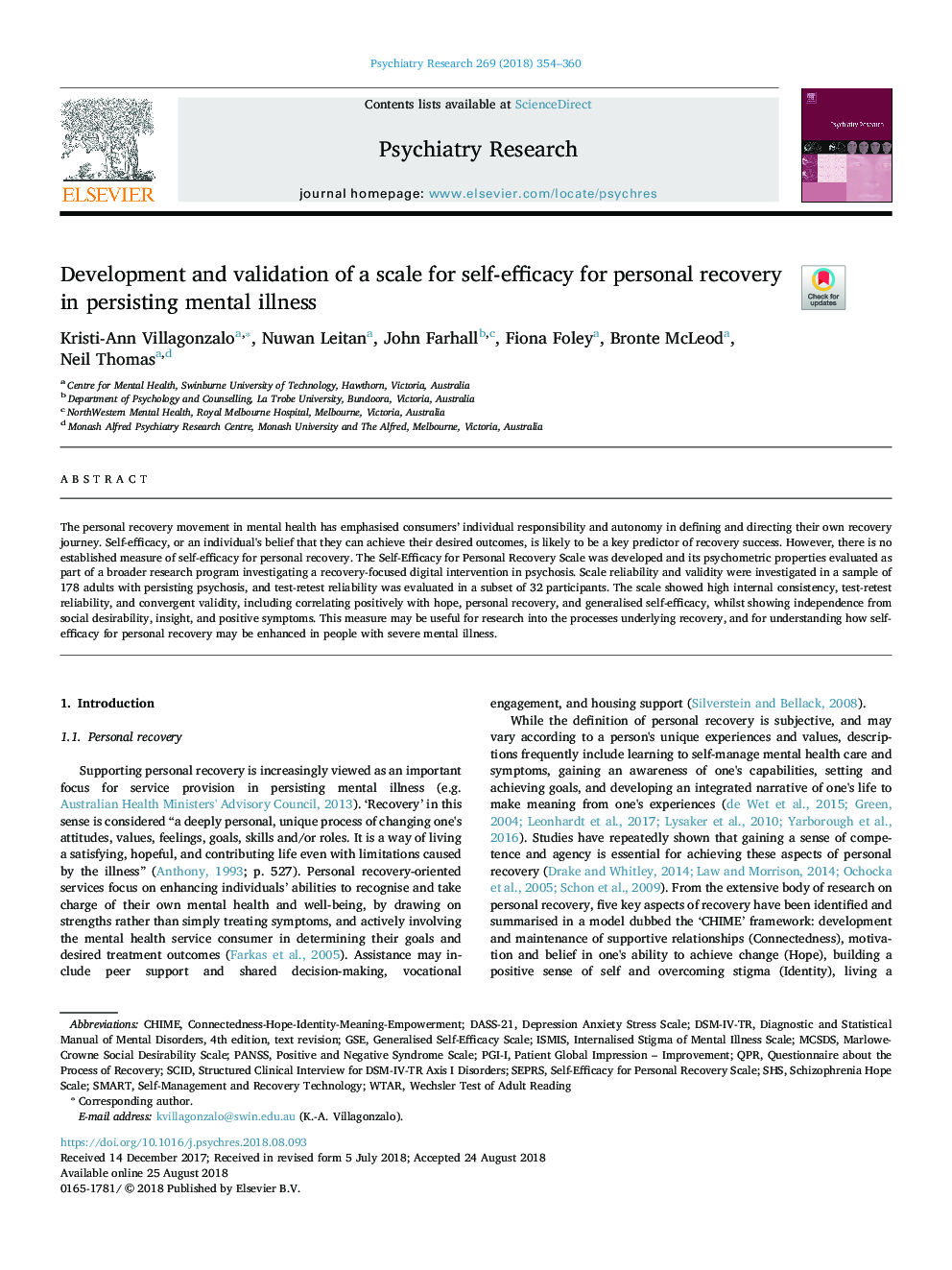| Article ID | Journal | Published Year | Pages | File Type |
|---|---|---|---|---|
| 10132308 | Psychiatry Research | 2018 | 7 Pages |
Abstract
The personal recovery movement in mental health has emphasised consumers' individual responsibility and autonomy in defining and directing their own recovery journey. Self-efficacy, or an individual's belief that they can achieve their desired outcomes, is likely to be a key predictor of recovery success. However, there is no established measure of self-efficacy for personal recovery. The Self-Efficacy for Personal Recovery Scale was developed and its psychometric properties evaluated as part of a broader research program investigating a recovery-focused digital intervention in psychosis. Scale reliability and validity were investigated in a sample of 178 adults with persisting psychosis, and test-retest reliability was evaluated in a subset of 32 participants. The scale showed high internal consistency, test-retest reliability, and convergent validity, including correlating positively with hope, personal recovery, and generalised self-efficacy, whilst showing independence from social desirability, insight, and positive symptoms. This measure may be useful for research into the processes underlying recovery, and for understanding how self-efficacy for personal recovery may be enhanced in people with severe mental illness.
Keywords
Related Topics
Life Sciences
Neuroscience
Biological Psychiatry
Authors
Kristi-Ann Villagonzalo, Nuwan Leitan, John Farhall, Fiona Foley, Bronte McLeod, Neil Thomas,
